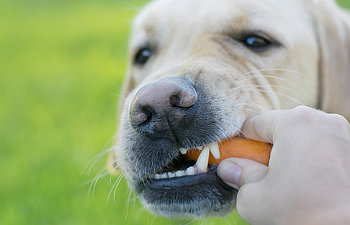
Here is a list of antioxidant-rich foods that are generally safe for dogs when given in moderation:
- Blueberries: Rich in antioxidants, vitamins, and fiber, blueberries can provide numerous health benefits for dogs. They are low in calories and make a tasty and nutritious treat.
- Spinach: Spinach is packed with antioxidants, vitamins, and minerals. It can be beneficial for your dog’s overall health when served in small amounts and properly cooked to remove any potential oxalates.
- Pumpkin: Pumpkin is a great source of antioxidants, fiber, and vitamins. It can help support digestion and promote a healthy immune system. Make sure to use plain, canned pumpkin without any added sugars or spices.
- Sweet Potatoes: Sweet potatoes are rich in antioxidants, vitamins A and C, and dietary fiber. They make a nutritious addition to your dog’s diet when cooked and served in moderation.
- Cranberries: Cranberries are a source of antioxidants and can support urinary tract health in dogs. However, avoid giving cranberry sauce or sweetened cranberry products, as they may contain excessive sugar.
- Broccoli: Broccoli contains antioxidants, vitamins, and minerals. Serve it in small, bite-sized pieces, and ensure it is cooked or steamed to aid digestion.
- Carrots: Carrots are low in calories and high in antioxidants, vitamins, and beta-carotene. They make a crunchy and nutritious snack for dogs. Serve them raw or lightly steamed.
- Apples: Apples are a good source of antioxidants, fiber, and vitamin C. Make sure to remove the core and seeds before offering slices to your dog, as apple seeds contain small amounts of cyanide.
- Green Beans: Green beans are low in calories and a good source of antioxidants and fiber. They can be served raw, cooked, or as frozen treats for your dog.
- Watermelon: Watermelon is a hydrating fruit that contains antioxidants, vitamins, and water-soluble fiber. Remove the seeds and rind, and offer small, seedless portions to your dog as an occasional treat.
Remember, while these foods are generally safe for dogs, it’s important to introduce them gradually into your dog’s diet and monitor their response. Additionally, always consult with your veterinarian before making any significant changes to your dog’s diet, especially if they have any underlying health conditions or specific dietary requirements.
Posted on behalf of






